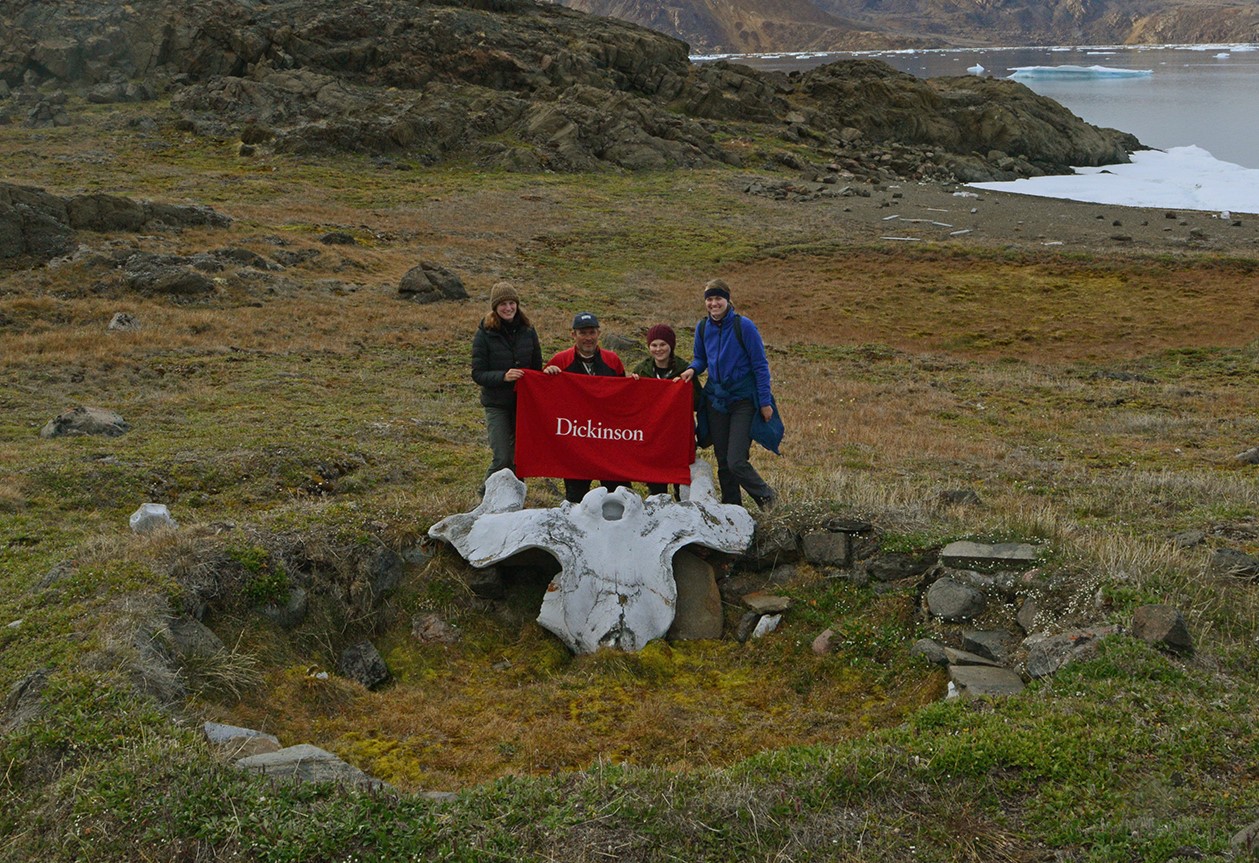2018 Alexander Fiord, Ellesmere Island

On the second trip in Summer 2018, a group of 6 Dickinsonians (Allison Curley’19, Kendra Bonsey ’19, Madie Ritter ’19, John and Susan Pohl, Ben Edwards) expeditioned to Alexander Fiord, on the eastern central coast of Ellesmere Island, Nunavut, Canada. We camped at a remote, now-unused RCMP patrol station from which we hiked to visit several nearby glaciers and kayaked within the fiord to visit a number of Thule and Dorset archeological sites. The flight up comprised 5 jumps starting in Ottawa, giving us a showcase of the Canadian Arctic from sea ice flows in Hudson Bay and the Foxe Basin to patterned ground on Axel Heiberg and Ellesmere islands, with a short layover in the very comfortable accommodations of the South Camp Inn, Resolute Bay, on Cornwallis Island. Once at our destination, Alexander Fiord, we learned some high precision GPS techniques for marking the edges of cold-based glaciers and spent a day with a group of ecologists studying how a warming Arctic will impact tundra plants. Another highlight of this trip was kayaking through walrus-infested waters of the fiord to visit Skraeling Island, one of the most important archeological sites in all of the Arctic. The island has both Thule and Dorset stone structures, some of which still have the original whalebone that was used to support hide covers for the structures. This trip lead to creation of a research project spearheaded by Allison Curley and alumnus Will Kochtitzky to examine rates of glacier change in Alexander Fiord using remote sensing; this work was also presented at AGU and is being turned into a journal manuscript.